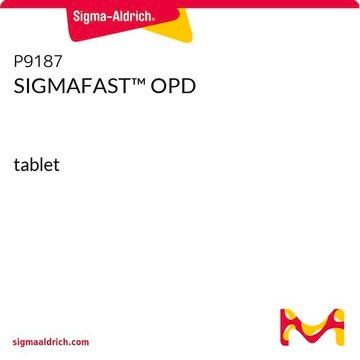C4899
Carnitine Acetyltransferase from pigeon breast muscle
ammonium sulfate suspension, ≥50 units/mg protein
Sinónimos:
CrAT
About This Item
Productos recomendados
origen biológico
pigeon breast
formulario
ammonium sulfate suspension
actividad específica
≥50 units/mg protein
concentración
≥0.4 mg/mL
técnicas
cell based assay: suitable
Nº de acceso Protein ID
Nº de acceso UniProt
temp. de almacenamiento
2-8°C
Información sobre el gen
pigeon ... CRAT(102084317)
¿Está buscando productos similares? Visita Guía de comparación de productos
Descripción general
Aplicación
Acciones bioquímicas o fisiológicas
Definición de unidad
Forma física
Nota de análisis
inhibidor
Código de clase de almacenamiento
12 - Non Combustible Liquids
Clase de riesgo para el agua (WGK)
WGK 2
Punto de inflamabilidad (°F)
Not applicable
Punto de inflamabilidad (°C)
Not applicable
Certificados de análisis (COA)
Busque Certificados de análisis (COA) introduciendo el número de lote del producto. Los números de lote se encuentran en la etiqueta del producto después de las palabras «Lot» o «Batch»
¿Ya tiene este producto?
Encuentre la documentación para los productos que ha comprado recientemente en la Biblioteca de documentos.
Los clientes también vieron
Artículos
Instructions for working with enzymes supplied as ammonium sulfate suspensions
Nuestro equipo de científicos tiene experiencia en todas las áreas de investigación: Ciencias de la vida, Ciencia de los materiales, Síntesis química, Cromatografía, Analítica y muchas otras.
Póngase en contacto con el Servicio técnico














